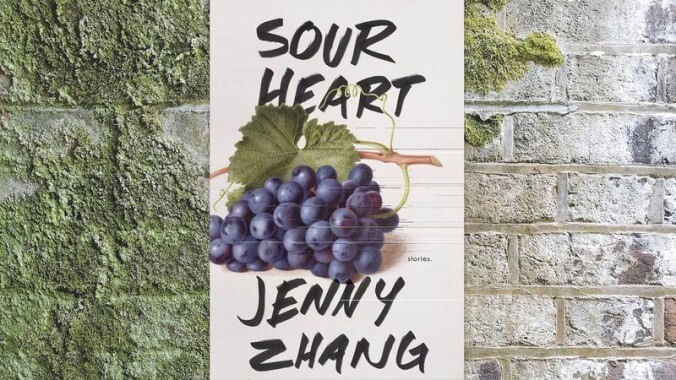Jenny Zhang’s raw Sour Heart is an unforgettable debut collection

Jenny Zhang’s characters and scenic precision stand out in her debut collection of short stories, Sour Heart: Stories, a book that illuminates the lives of six young Chinese immigrant girls wrestling with what defines their history, family, womanhood, friendships, and themselves. Each story is woven together with brief past encounters or relationships, giving way to individual journeys diverging within an exploration of these themes and struggles.
The ensemble of stories begins with a bang in early 1990s New York City in “We Love You Crispina.” Observed by its young daughter, a recently immigrated Chinese family goes through immense heartache, crippling social and economic abuse, and devastating failures. The scenes can be incredibly shocking and succeed in horrifying the reader, as well as leaving lasting images, giving the story a raw, stripped feeling. Zhang never glorifies the pain, though. She never tells the reader how to feel, creating instead a stark empathy within the reader for each child narrator. This style continues through each story, emphasizing tenderness, anger, and love, with the aid of long sentences, vivid scene work, and the wide windows through which each girl lets the reader in.
Women, young and old, are the focus of Sour Heart. Motherhood; sexuality; matriarchies; the roles of a wife, daughter, and sister; and the misunderstandings that can come from these identities rise up again and again in Zhang’s stories. No two are exactly the same, but all accompany the pressures of growing up in an immigrant family and the history these individuals bring with them. The Chinese Cultural Revolution brings dark memories to Annie’s mother in “Our Mothers Before Them,” who remembers the strength behind the cruelty of her own mother: “That’s how we’ll be with our own children… because we’ll learn from our mother who learned from her mother who learned from her mother who learned from her mother before her and all the mothers before them.”
In “The Empty The Empty The Empty,” Lucy realizes the power of her own body, her developing womanhood, and the widening distance between her immigrant parents and herself. As her mother demands understanding from her daughter, Lucy is left to her own devices and her own choices regarding who she wants to become. The complexity is refreshing, and Zhang’s women never fail to impress.
In her illustration of Chinese immigration in the ’90s, Zhang is often humorous though refrains from lighter tones. The humor in each story is earned in the same way the intensity and depth are—through the strength of each story’s character arc. It is the funny moments of misunderstandings, growth, and relationships that make the girls so real and immensely complex. A daughter goes through elementary sex education, a little brother burns the front tuft of his hair, a grandmother shares stories of her deafness, and a girl jumps into the Harlem River to save her family’s broken-down car—all reminders that these are pieces of whole lives, that pass in pain and love, people who share a cry and maybe a laugh, too. Sour Heart is more than a collection of stories worth telling; they’re the sort that rarely get told.
Purchase Sour Heart here, which helps support The A.V. Club.